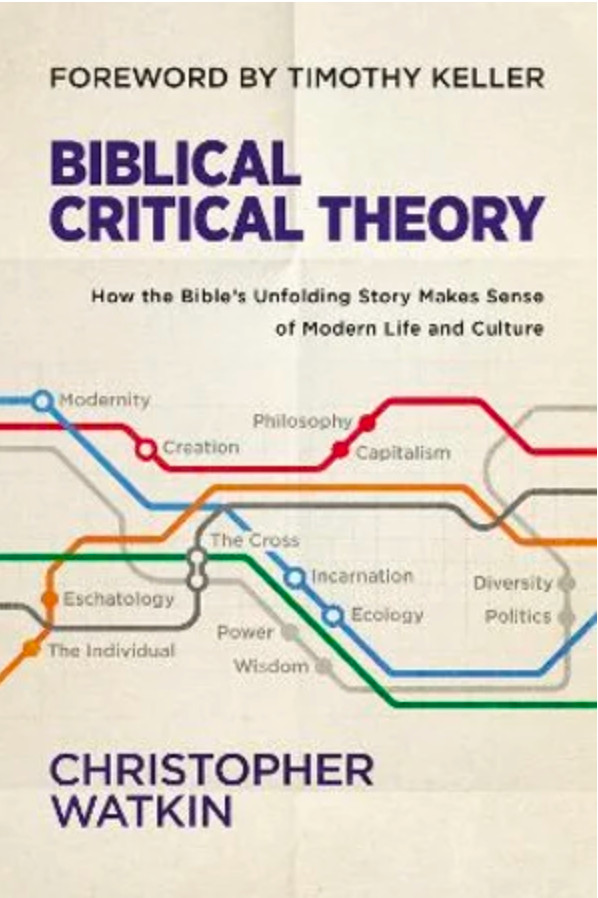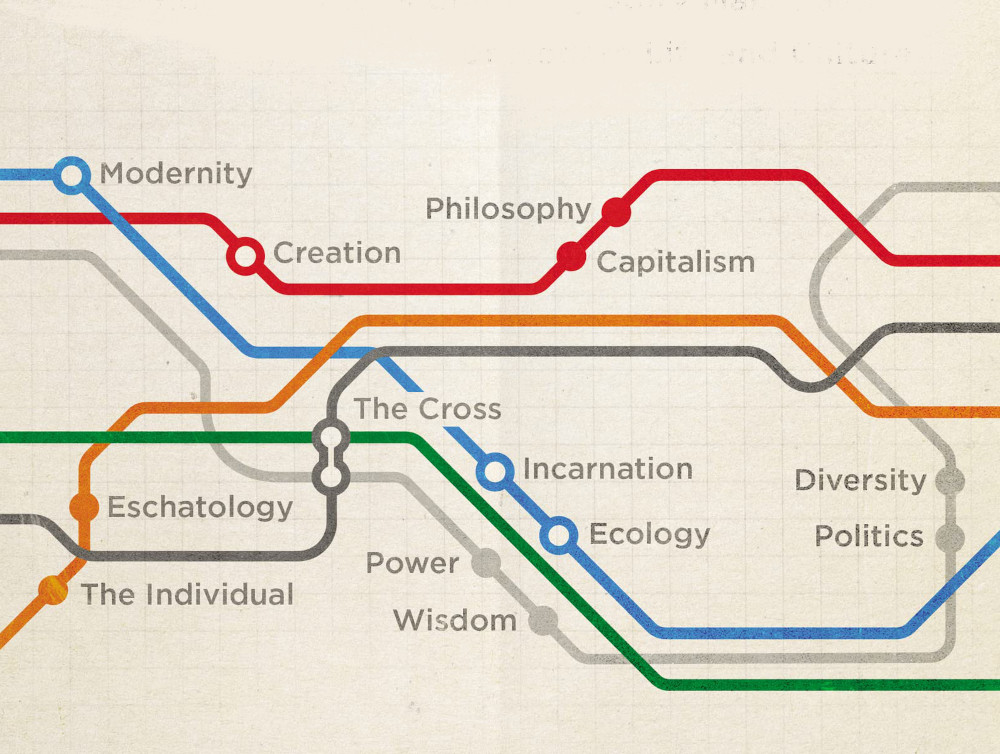The new book Biblical Critical Theory brings together a mind that understands current philosophies, and how the Bible’s big story deals with the questions they raise. That mind belongs to Chris Watkin a lecturer at Monash University who explained at a book launch at New College UNSW why he spent seven years writing it.
“I can’t help but think back to the first moment that I had the idea to write a book like this,” Watkin recounts. “So if you can imagine me as a fresh-faced undergraduate, relatively new Christian, going up to a large secular university to study in the arts faculty, and being, I guess, really frustrated with the way that my life seemed to be split into two different worlds at the time.
“The first world was the world of my studies. So every week we will be reading books, or Marx and Freud and Nietzsche and expects to churn essays out about them. And I remember that one particular unit that I took at that time was my favourite. During the whole of my undergraduate career, it was called Modern Critical Theory. And every week, we get a new theoretical perspective to try and digest and write an essay about.
“There was a week on feminism, there was a week on post-colonialism, there was a week on Derrida, a week on Foucault, a week on Deleuze. And it struck me as we churned through these different theoretical approaches that they were all fundamentally doing something really quite simple.

“All of them were making certain things in the world visible. They were sensitising us to certain things in the world, drawing our attention to them, whether that’s the oppression of women in society, or power relations in society, whatever it was, they were trying to make certain things stand out for us. And they were trying to make certain things in the world fallible to us. They were teaching us what to condemn and what to care about in the world. And at its most fundamental genetic level, that’s what Critical Theory is doing. It’s making certain things in the world visible, and certain things in the world valuable to those who espouse a theory.
“But I was also living in a second world at that time, and it was the world of my church and my Christian Union. It was a world where we were taught to take the Bible seriously, to read it slowly, to work out carefully how it applies to the hope of life. And as we did that, over the years, it occurred to me that among all that the Bible is doing and primarily of course, it is making us wise for salvation … but among what the Bible is doing, it is also making certain things in the world tools, discipline, for example, the glory of God in creation.
“So there might have never have occurred to you had you not read in the Bible that ‘the heavens declare the glory of God.’ I think it is making certain things in the world valuable to us, like the widows and orphans in society, for example, or the value of serving other people. And there was no place – and this was my frustration – no place in my life, either an intellectual space or a physical space. At that time where these two worlds could come together, and talk with each other about these different ways of making things visible, and valuable in the world. No place where you can, you know, hold Rousseau in one hand and Book of Romans in the other and and just let it out, and get a conversation going between those different ways of viewing the world.”
Critics rejoice
From Wheaton, Illinois, John Dickson assured listeners that the book lives up to his extravagant praise of it. “The extraordinary thing is, Chris doesn’t try to dazzle the reader, with the fact that he really understands those impenetrable thinkers like Heidegger and Marx and Foucault and Derrida. Instead, what Chris does, is he shows why these figures deserve their place among the great thinkers in the Western tradition, and how their ideas continue to influence the Contemporary Conversation. And importantly, why were those thinkers are wrong. They’re wrong, usually, because they got a half truth, that the Bible itself completes, and is the full representation of, and this is what I love about Chris’s book.”
Natasha Moore of CPX (the Centre for Public Christianity) wearing her English Literature hat praised the book’s readability, and also donned her public Christian beret to declare “I’m going to kind of nimbly skirt around here the rabbit hole of what has come to be labeled Cultural Marxism by simply saying that in a bitterly divided, confused, fearful, self righteous, and terribly blinkered cultural landscape, you know, I’m describing there not any one particular sign of cultural wars, but really the whole moral atmosphere too much of our public discourse. In that context, Chris’s book comes as a breath of fresh air, you know, a kind of a glimpse of the starry night sky above normal is a sensible, humble, robust, joyous gift of a way forward out of some of the deepest ruts, the weariest impasses, the most tangled smells of our cultural moment with my public Christianity head on, I want to thank Chris, for what is essentially a public Christianity.”
Positive where Schaeffer was negative
Bishop Michael Stead compared Watkin’s Biblical Critical Theory to an earlier author, Francis Schaeffer whom earlier generations of undergraduates read avidly on the Christian response to philosophy.
“Let me say what I really liked about Chris’s approach is that it is both constructive and confident. It’s constant constructive in the sense that it’s not, at its foundational level, destructive first,
“if I can contrast it to the approach of Schaeffer, whose approach was to ‘blow the roof off,’ that is to pick apart another system [of thought]. To show why that system is inconsistent, incoherent or unliveable, and then say, ‘well, that system doesn’t work. Now, let me tell you about Christianity as a rival alternative to a deconstructed to destroyed system,’
“Chris’s approach is the other way round. That is to unapologetically begin with a biblical critical theory as it emerges from the pages of Scripture, and then use this to protect the alternatives rather than start with destruction for us.
And for this reason, it’s therefore starting from a position of confidence in God’s Word that, therefore goes on to reinforce confidence in God’s word. Chris earlier said that he hoped that [his book] would put us on the front foot and interestingly, not having heard that, I said, ‘we don’t have to start on the back foot.’’
Sold out
This book has sold out its first printing and for a hard copy, you would need to pre-order it. But I am told the Kindle version works well!


There’s also a Logos digital edition for those with a Logos package.